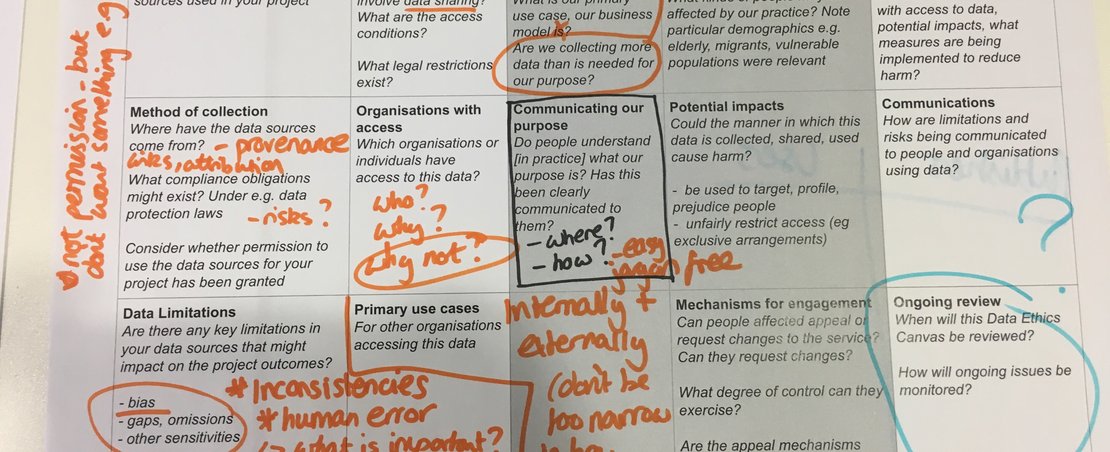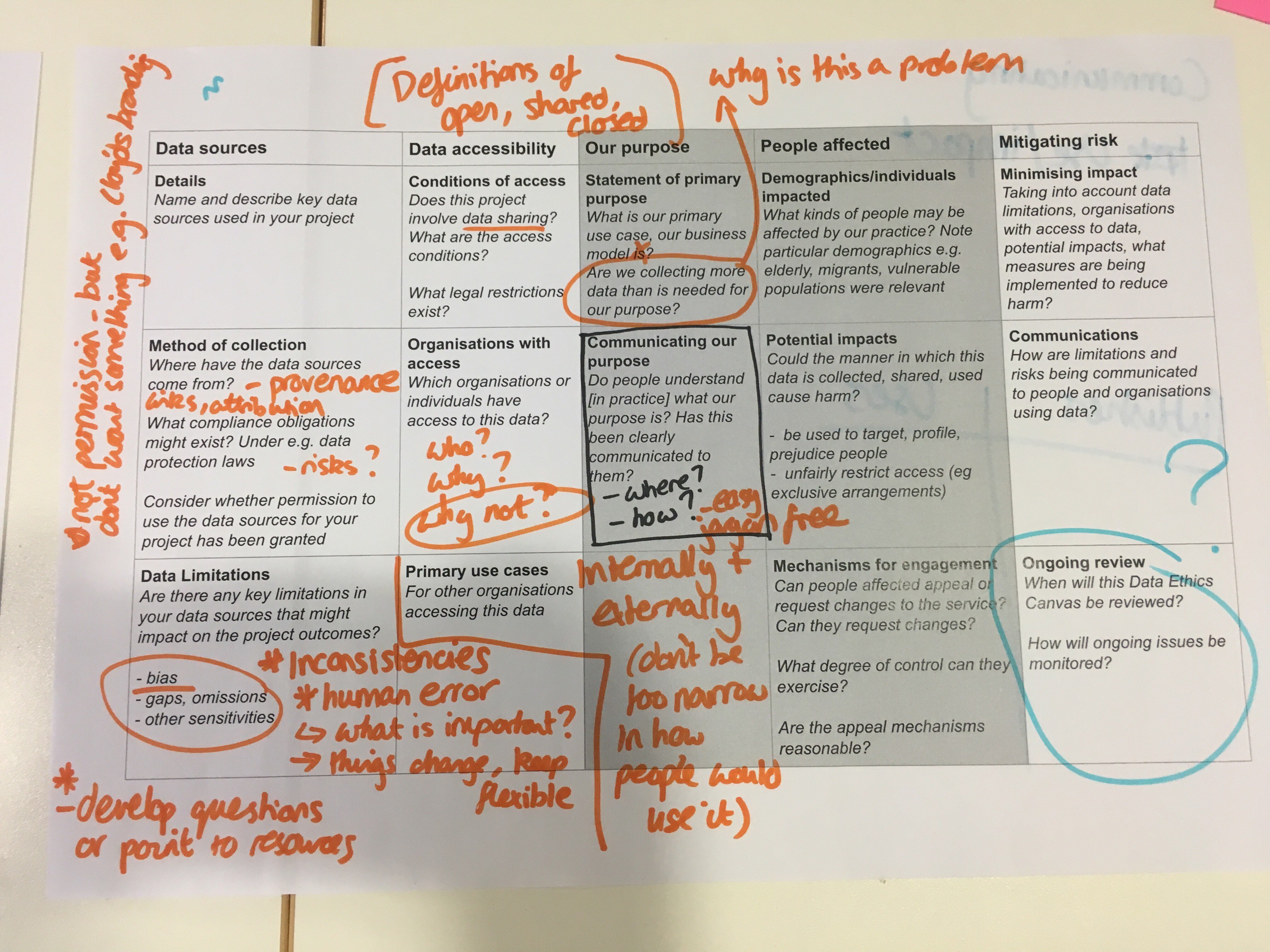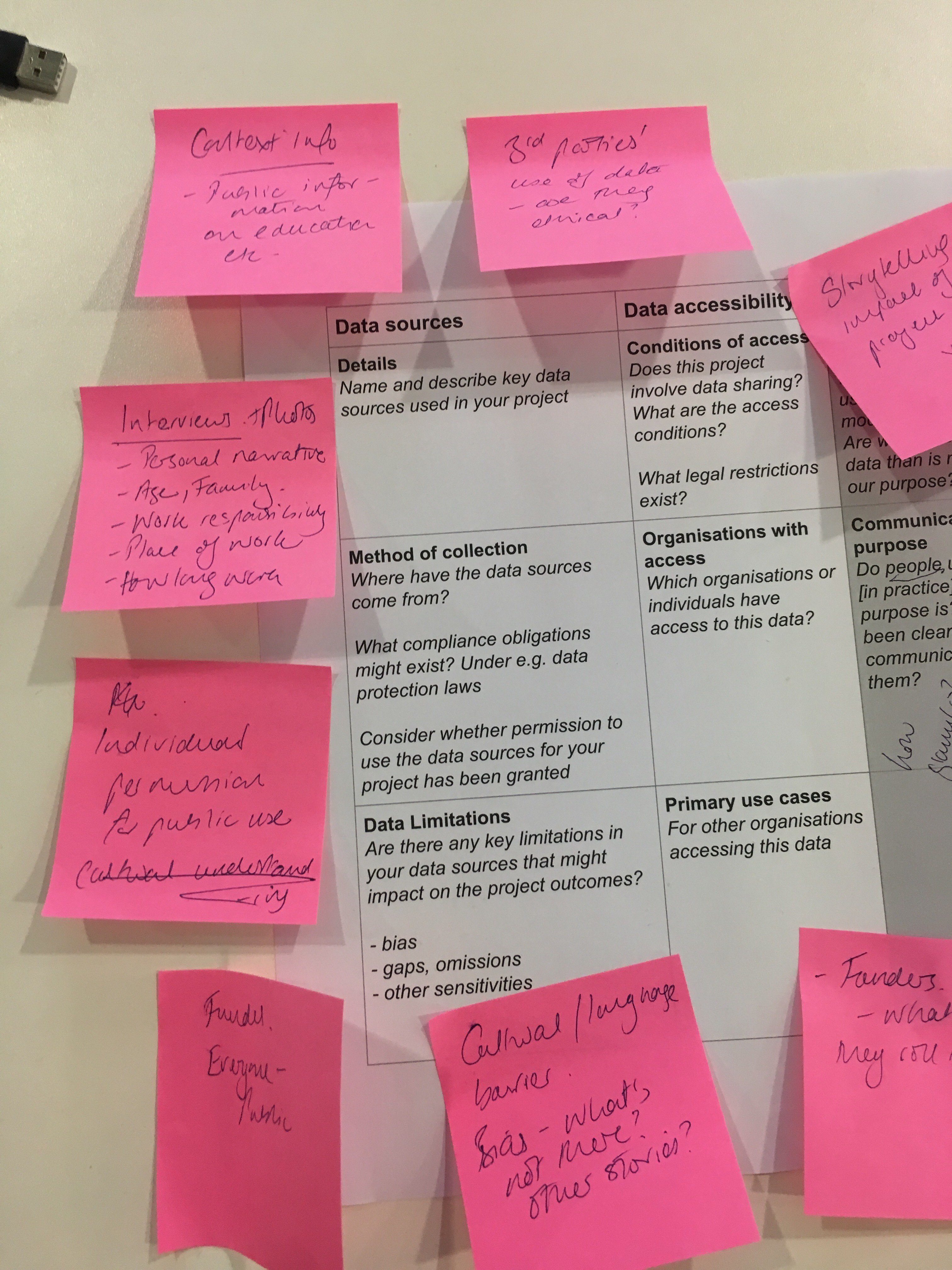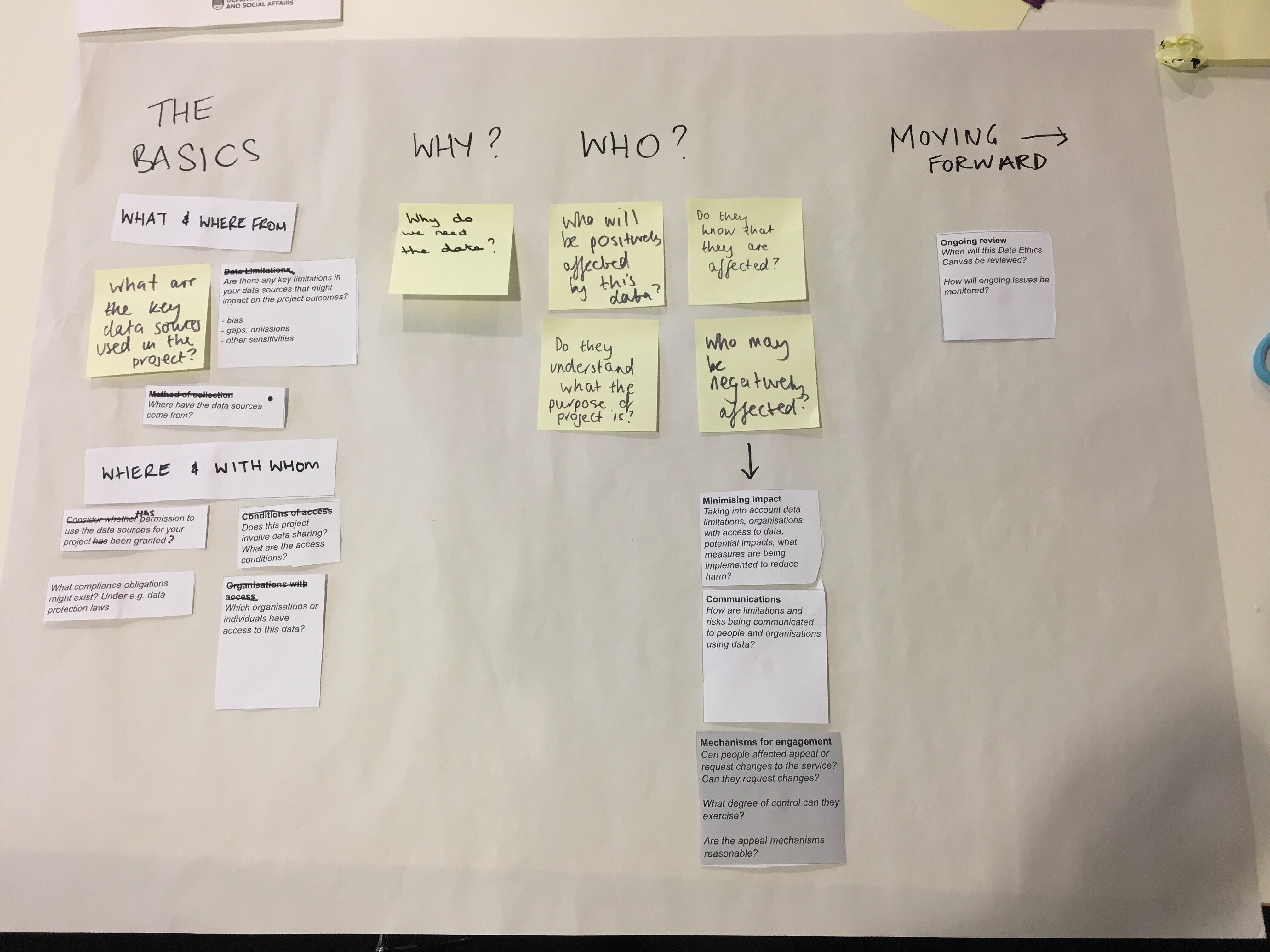
With the ODI's Ethical Data Canvas and paper on ethical use of data soon to be launched, Amanda Smith shares insights from workshops and inspiration from similar initiatives in the responsible data space, and encourages future collaboration

At the ODI, a core pillar of our mission is to build a strong, fair and sustainable data economy. In order to do this, we know that we all must build trust in data by handling it ethically and equitably, while engaging those affected by it.
Using data ethically often results in better direct outcomes for people and the organisations that use data. We have been writing a paper to help people and organisations to navigate ethical concerns in their data practices that can arise from how data is collected, who it is shared with and what it is used for.
We are challenging common assumptions – such as data ethics only becoming an issue when activities involve personal data – and will soon be publishing our paper with what we’ve learnt so far.
In researching for the report, we learnt that new data protection legislation – such as the General Data Protection Regulation (GDPR) – is helping organisations to comply with best practice in handling personal data. However, we are all still learning to understand the ethical issues of data while, at the same time, our societal norms are evolving.
While the adverse impacts that some data projects and services have had and could have on people are obvious, others are more nuanced and their potential negative impacts can be missed as far back as the design stage.
To help organisations consider data ethics as they develop data projects and services, we’ve created the first iteration of a Data Ethics Canvas.
How the Data Ethics Canvas works
The canvas is designed to prompt discussion and critical thinking, rather than be a checklist for compliance. Our Data Ethics Canvas is adapted from the existing Ethics Canvas, created by a team of researchers in the ADAPT centre. Their canvas is based on the original business model canvas, created by Alex Osterwalder of Strategyzer. We’ve extended key considerations of the Ethics Canvas, such as ‘organisations and groups affected’ to ‘demographics and individuals affected’, and ‘resources needed’ to ‘methods of collection’. We’ve also included data handling, sharing and use in our Data Ethics Canvas.
The first iteration was drawn up by ODI Associate Ellen Broad, then edited by the ODI policy team. And because we share the UK government’s value that making things open makes them better, we brought a mix of the ODI team together with Catherine Miller from Doteveryone to discover, play with and hack the first iteration of the Data Ethics Canvas by testing it against real projects that we are all involved in.
The pictures below show some of the results of two hours of tinkering, cutting, sticking, editing, adding and restructuring.


Initial questions about the first version of the Data Ethics Canvas from the groups in our workshop included:
- Does this mean all data, rather than just personal data?
- Should I use this at the start of a project, or throughout?
- Who is the audience, and what are their motivations for using the canvas?
- Who would have access to the canvas?
- Would an organisation publish their canvas?
- How do local, or sectoral approaches to ethics fit with data ethics?
We want to create a canvas that is intuitive and doesn’t require people to ask lots of questions before using it, so these questions helped us to understand where we needed to improve the first iteration before releasing it more widely.
Encouraging creativity
Some people thought the Data Ethics Canvas should be a standalone website, though others thought that could make the canvas static and limit creativity and collaboration.
Existing formats used for similar initiatives that we think encourage creativity and collaboration include IDEO’s design kit, the Open Innovation Toolkit, recently launched by 100%Open, Oxfam's Responsible Data Management training pack, the Responsible Data Toolkit produced by the Engine Room and NESTA’s tools and resources for innovation. We are also keen to draw on themes and ideas from our own policy design patterns, and have discussed more conceptual ideas taken from approaches like musician Brian Eno's Oblique Strategies.
One group of participants in our workshop thought the sections of the canvas should be phrased as questions to encourage self-interrogation. Another thought the canvas should be split by ‘collect, use and share’ data categories with risks underlying each, rather than have a separate box for risks.
All of our workshop participants said it made them think about their own projects differently. Providing the space, tools and frameworks to pose questions about data – or things that don’t even obviously seem to be data – is important; as is discussing its impacts and how adverse impacts can be mitigated.
We'll launch the rejigged canvas and accompanying paper in the next few weeks.
We want to work with you
We hope it complements what people in the community are already doing in their work on data and ethics. If you would like to collaborate with us, give us feedback or simply share your thoughts, get in touch at [email protected].
Amanda Smith is Senior Consultant at the ODI. Follow Amanda on Twitter.